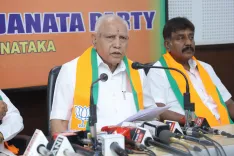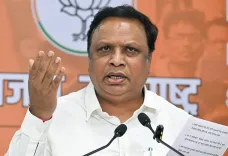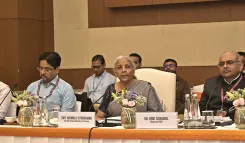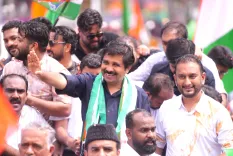Is Madurai's Murugan Conference Hiding a Communal Agenda?
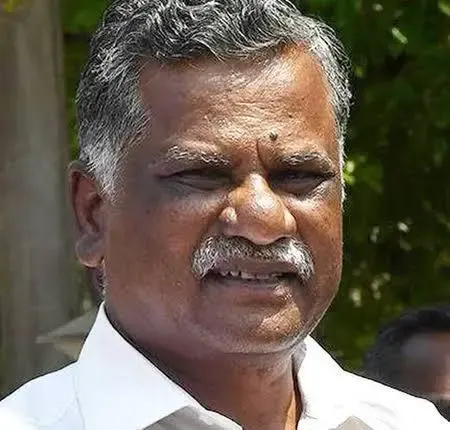
Synopsis
Key Takeaways
- CPI criticizes Murugan Conference for alleged communal agenda.
- Event linked to Hindu Munnani and RSS by CPI.
- Political speeches violated Election Commission guidelines.
- Call for secularism to counter communalism.
- Enduring Tamil philosophy promotes inclusivity.
Chennai, June 23 (NationPress) The Communist Party of India (CPI) has vehemently criticized the recently conducted Murugan Devotees’ Conference in Madurai, charging the organizers with utilizing religious fervor as a facade to promote communal and divisive political agendas.
In a pointed statement released on Monday, CPI Tamil Nadu State Secretary R. Mutharasan condemned the gathering, claiming it was orchestrated with backing from the Rashtriya Swayamsevak Sangh (RSS) and its affiliate Hindu Munnani.
While the organizers portrayed the conference as a spiritual assembly, Mutharasan argued that it was fundamentally political, rooted in Hindutva ideology inspired by V.D. Savarkar's writings. He remarked, “The RSS, which does not act as a political party, is ideologically associated with the forces behind Mahatma Gandhi’s assassination. It has struggled to gain significant ground in Tamil Nadu due to the state's rationalist, self-respecting, and socialist foundations.”
Tracing the origins of Hindu Munnani back to the early 1980s after the religious conversion incident in Meenakshipuram, Mutharasan noted that its founder, Ramagopalan, was infamous for inciting communal discord. He asserted that the recent event aligns with a broader initiative to communalize Tamil society by invoking Murugan, a deity cherished by all Tamils regardless of caste or creed.
Mutharasan highlighted incidents such as the forced interruption of a minority family's private worship in Erode and recent tensions around the Tirupparankundram hillock, accusing right-wing factions of weaponizing religious symbols to create social fractures. He also criticized the presence of senior RSS and BJP figures, including Andhra Pradesh Deputy Chief Minister Pawan Kalyan, for politicizing the conference.
He pointed out that the political speeches and resolutions, including one advocating for a “Hindu vote bank,” breached the Election Commission’s model code of conduct and contradicted a recent High Court directive that prohibits the intertwining of religious and political platforms.
Urging the public to reject what they labeled a “communal frenzy disguised as devotion,” the CPI reaffirmed its commitment to secularism. The party cited the Keeladi archaeological discoveries and the time-honored Tamil philosophy of “Yaadhum Oore Yaavarum Kelir” as lasting symbols of the state's inclusive and pluralistic spirit.

